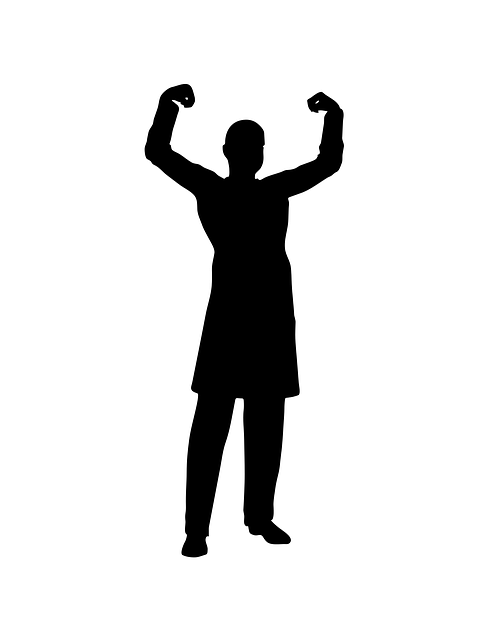In our daily life and work, there exists a crucial yet often neglected ability—cognitive power. Cognitive power refers to people’s insights and judgment about the world. The closer your judgment is to the reality, the higher your cognitive power is. Although the majority of people’s intelligence and abilities are not far apart, the differences in cognitive abilities often result in starkly different trends in social development. The strength of cognitive power is even seen as the key difference between “doing the right thing” and “doing things right” in the workplace.
However, enhancing cognitive ability is easier said than done. We often consider ourselves to be calm and rational, yet unconsciously, we are influenced by the external environment, which distorts our worldview. In this process, there are three particularly noteworthy cognitive biases that severely interfere with our rational judgment and become obstacles in improving our cognitive power. Below, we will explore these three cognitive biases and understand how they subtly influence us.
Cognitive Bias One: Confirmation Bias
Confirmation bias refers to the tendency of people to search for and focus on evidence that supports their existing beliefs while ignoring or rejecting information that contradicts them. This phenomenon has been omnipresent since ancient times, for example, the classic story “The Neighbor Stealing the Axe” is a typical example. People often see only what they want to see and turn a blind eye to the facts that do not fit their views.
The television program “Love Defense War” once demonstrated this point. In one episode, a married couple of seven years started to criticize each other’s faults as soon as they appeared on screen. The husband complained about his wife’s nagging, and the wife criticized her husband’s laziness. Neither side would give in and seemed only to see the faults of the other. However, when the host probed further, the couple also mentioned each other’s strengths: the wife thought her husband was competent at work and filial to his parents, while the husband found his wife to be independent with good skills. This scene reveals that under the influence of confirmation bias, we might only be arguing with the version of the other person in our minds, overlooking the real positive aspects of the other.
If it hadn’t been for the host’s guidance, the couple might have continued to struggle with confirmation bias, unable to see the real, positive side of each other. These examples show that confirmation bias may not only strain relationships between people but also lead to a distortion of facts, thus hindering our ability to assess situations and people objectively and accurately.
Imagine how common this situation is in our daily lives: Sometimes, when we notice a colleague pointing out our mistakes, we may feel that they are hostile towards us, even finding many so-called “evidences” to support this view. Even when sometimes, the colleague is simply making suggestions in an official capacity; when we feel that our lover’s affection for us has diminished, almost anything can be interpreted as evidence that their feelings have changed, such as a delay in replying to messages, without considering that the other party might just be very busy with work. Please remember: what we see is often what we want to see. Once we look at issues with emotional bias, it is easy to fall into the trap of cognitive errors.
Misconception Two: Dunning-Kruger Effect
The so-called Dunning-Kruger Effect refers to the phenomenon where individuals with insufficient abilities reach erroneous conclusions based on decisions they have not thoroughly contemplated. In layman’s terms, it is what Dr. David Dunning pointed out: “Some people always think they know everything, or they underestimate their ignorance of certain matters.” This effect was discovered by social psychologists David Dunning and Justin Kruger in their research on people’s skills in reading, driving, playing chess, or playing tennis, especially in terms of a sense of humor, language ability, and logical reasoning. Their studies show that individuals with the least skills often overestimate themselves, believing they could score over 60% when their actual performance is only at 12%. Based on these findings, Dunning and Kruger published research papers summarizing the Dunning-Kruger Effect and proposed the following characteristics:
- People with lesser abilities tend to overestimate their level of skill;
- They are unable to accurately assess the level of skill of people who truly possess the relevant abilities;
- They are also unaware of their deficiencies and the extreme extent of these deficiencies.
The root cause of this widespread phenomenon is that people tend to overestimate their own capabilities in order to maintain self-confidence. In a nutshell, it’s “considering oneself an expert while being unwilling to accept criticism, mistakenly believing that others are equally ignorant.”
If you think you have never made such a mistake, you might have fallen into the cognitive trap of the Dunning-Kruger Effect. As the saying goes: “Individuals with insufficient ability often overestimate themselves.” Does this remind you of anything? For instance, many people are critical of the quality of Chinese football, complaining about its low level, and some even boastfully challenge the national team, questioning their ability to beat an ordinary school team. In response to this sentiment, the writer Han Han narrates his own youthful experiences in his article “I Once Knew Nothing of That Strength,” where he, as a college team member playing along with other good school team players, faced a fifth-grade professional children’s soccer reserve team. Despite only facing a group of elementary school students who were professional reserve players, their overconfidence took over. Within the first 20 minutes of the half, they conceded 20 goals without scoring any themselves, successfully completing less than ten passes, and being led around by the nose by the kids throughout the match. Eventually, the opposing coach even canceled the second half of the game, reasoning that continuing the match would affect the young players’ mental health. Since then, whenever Han Han’s friends complained while watching football matches, he would simply observe and smile quietly, having long realized his own ignorance back in the day.
Confucius once said: “Real wisdom is recognizing the extent of one’s own ignorance.”
As Shakespeare said, “A fool thinks himself to be wise, but a wise man knows himself to be a fool.”When a person does not know they are ill, they die without a diagnosis; when a person believes they are already good enough, there is no discussion of progress.
The key path to opening cognitive horizons
To expand our range of understanding, we must take a series of measures.
1. Self-awareness
It is not easy to truly understand oneself, as people often have misconceptions about themselves. For example, a successful entrepreneur may overestimate their talents, while a failing entrepreneur may blame their failure on bad luck. The philosopher Wang Yangming emphasized “self-cultivation” and “unity of knowledge and action,” pointing out that if a person’s mindset is not correct, their cognition will be mistaken, leading to erroneous judgments. To truly understand ourselves, free from the influence of bias, we must first identify and examine biases that exist in our hearts, such as regional bias, gender bias, and other subjective opinions, exploring their origins, such as upbringing, educational background, beliefs, and personal experiences, etc. In summary, self-awareness is a person’s self-awakening to their existence, and a thorough understanding of personal behavior and mental states.
2. Understanding the world
In today’s information age, we have numerous ways to learn about the world. Both major and minor historical events can be known through various means. Even so, many entrepreneurs still have biases in their understanding of the world, markets, or competitors. This is often due to problems with the way information is obtained.
① Evaluate information sources
Take, for instance, the Internet Trends report released by “Queen of the Internet” Mary Meeker, which contains detailed content on all the important trends of the Internet industry of the year and its future influence. However, the report contains very little information about industry giant ByteDance and its products. Therefore, this report cannot be considered comprehensive. Industry reports obtained from public sources often cannot form the cornerstone for building a competitive advantage. When evaluating the market and customer needs, entrepreneurs must personally delve into the market research to obtain key information, making unbiased rational decisions.
② See the whole picture
We need to be wary of the “blind men and the elephant” kind of partial understanding. This ancient parable tells us that judging or guessing the whole based on partial experience or limited perspectives is likely to lead to incorrect judgments. A truly comprehensive understanding requires looking from different angles, collecting and evaluating all kinds of information, to form a global and integrated understanding.
Business decisions should be based on accurate and grounded information, and relying on out-of-context or one-sided information at any time can lead a business down the path to ruin. Obtaining the latest, most authentic, and most referential information is indispensable, requiring direct communication with various market participants. This cognitive attitude is crucial. Every market observer has limitations in their perspective; therefore, compiling and understanding various viewpoints is necessary to gradually construct a complete market picture.
Distilling effective information is key to enhancing cognitive capabilities. As our understanding of the world and markets deepens, we realize that even though an individual’s cognitive abilities may surpass many others, facing the vast and ever-changing global systems, it is important to acknowledge that we can never fully master them. Once our cognitive abilities reach a stage where we can formulate relatively accurate hypotheses, they should be tested with practice. The dynamic nature of the markets means that information is also constantly being updated, so we must continuously refine our ability to extract information, especially in understanding and grasping the latest market trends.
Regular summarization and review are crucial for the development of a business. Even large-scale enterprises need to reflect periodically during their progression to uncover potential minor issues. For startups, review should be part of their development, helping entrepreneurs find direction amidst confusion and enhance their cognitive abilities. This process is not just a record of past experiences but also a time to reflect on mistakes and improve cognition. Without timely reflection and summarization, at best one may frequently encounter setbacks and, at worst, it may lead to startup failure or corporate bankruptcy.
Interacting with top industry professionals can greatly enhance personal cognition. Those at a lower level of cognition are unlikely to see the broader perspective and may mistakenly believe their cognition encompasses all there is to know. An effective way to break through this barrier is to engage with industry experts with higher-level or up-to-date cognition, thus expanding one’s cognitive boundaries. Only when you have a clear and accurate understanding of both yourself and the world can you grasp the true value chain and the trends in industry development.
Life is made up of countless choices, and the quality of these choices directly affects our current situation. Most choices do not have definitive answers and rely on our cognitive abilities to make the most rational judgment. Ultimately, it is not life that chooses us; instead, we choose our own lives.







